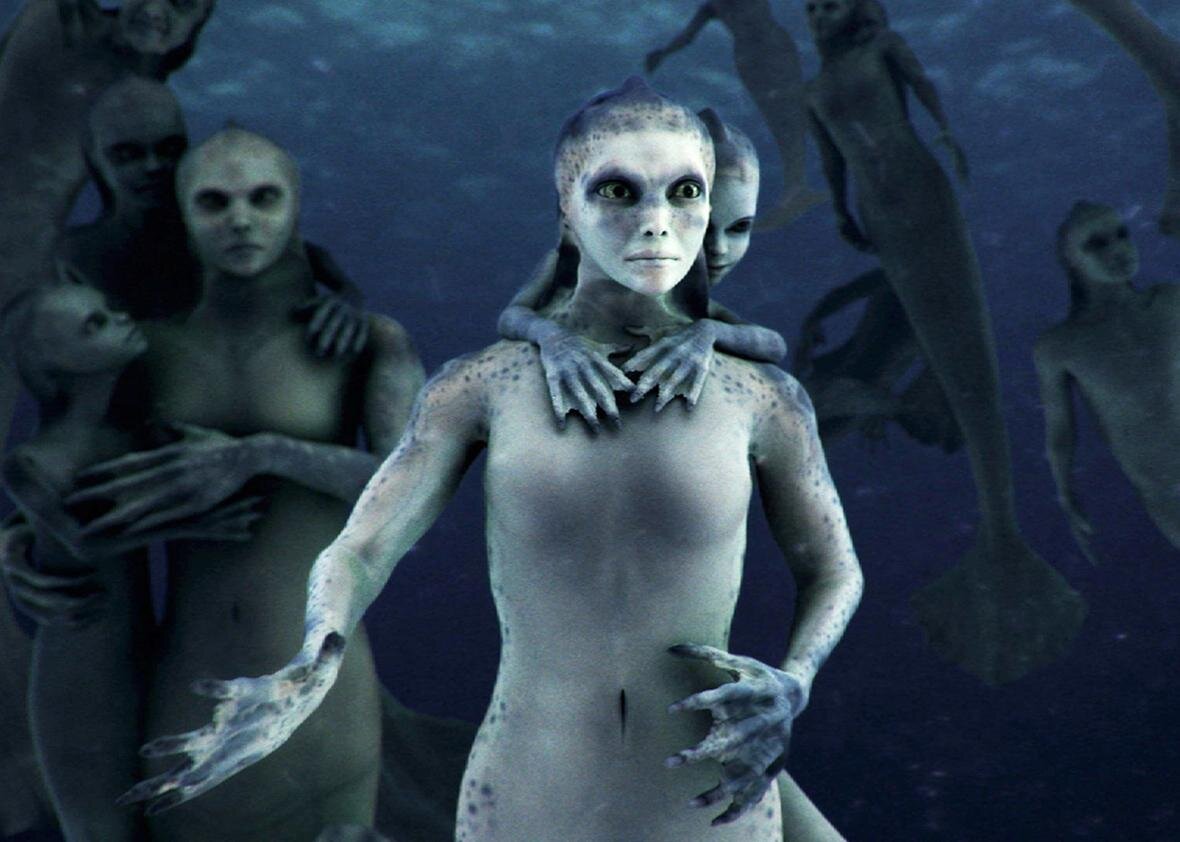On May 27, 2012, Animal Planet aired Mermaids: A Body Found, and 1.9 million viewers tuned in. The documentary-style format, coupled with Animal Planet’s reputation of disseminating educational nonfiction, led many viewers to change their tune and their beliefs. Mermaids were no longer fictional beauties willing to sacrifice their voice for legs and a shot at the prince. They were real, tool-welding humanoids with an advanced language NOAA researchers heard as a “bloop” for the first time in 1997—they were also beings the government wanted to keep secret. In the opening scene, Dr. Paul Robertson of NOAA Fisheries Department assures the audience he is a conspiracy theory skeptic. He believes Al-Qaida crashed 9-11, man landed on the moon, and Oswald assassinated J.F.K., so when he explains there is proof the government covered up the existence of mermaids, the audience listened. Even should-be skeptics failed to read the fine print. In “The Politics of Fake Documentaries,” marine biologist Andrew David Thaler recounts what a fifth-grade schoolteacher told him after watching the docu-fiction: “If NOAA is lying to us about the existence of mermaids then they’re definitely lying to us about climate change.”[1]
Although Thaler makes a great point—using real institutions in fake documentaries fuels the distrust of those institutions, which provides anti-intellectual movements a stronger, louder voice— what about the artistic merit and the deeper truth Mermaids reveals? Perhaps we might better serve the sciences and the humanities by addressing the issue of media illiteracy. Even if a viewer missed Dr. Robertson’s comparison to Orson Welles’s War of the Worlds or the other subtle clues, the topic of mermaids should give a viewer pause. Thankfully most viewers did pause. The night Mermaids aired, the film’s title was Google’s number one search.[2]
Then there’s the bigger truth Mermaids surfaces. We have yet to discover every species. Although it is unlikely mermaids are out there, there is something. It emerges in our dreams and casts shadows in our imaginations. Besides, who’s to say mermaids won’t one day become real? Bored and lonely in the lab, a scientist might splice a gene and create a fish-woman whose tawny tresses drape across her mammalian attributes and whose seductive songs reverberate like a bloop.
[1] Andrew David Thaler, “The Politics of Fake Documentaries Mermaids: The Body Found and its ilk have done long-term damage,” Slate, Aug. 31, 2016: https://slate.com/technology/2016/08/the-lasting-damage-of-fake-documentaries-like-mermaids-the-body-found.html
[2] David Golder, “The Dinosaur Project: Exclusive Director Interview,”Games Radar, Aug. 9, 2012: https://www.gamesradar.com/the-dinosaur-project-exclusive-director-interview/

